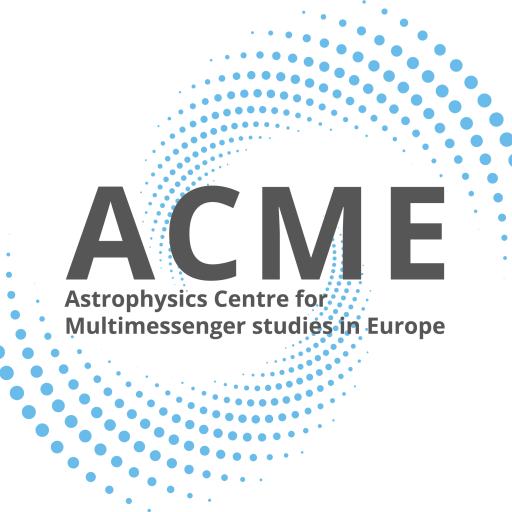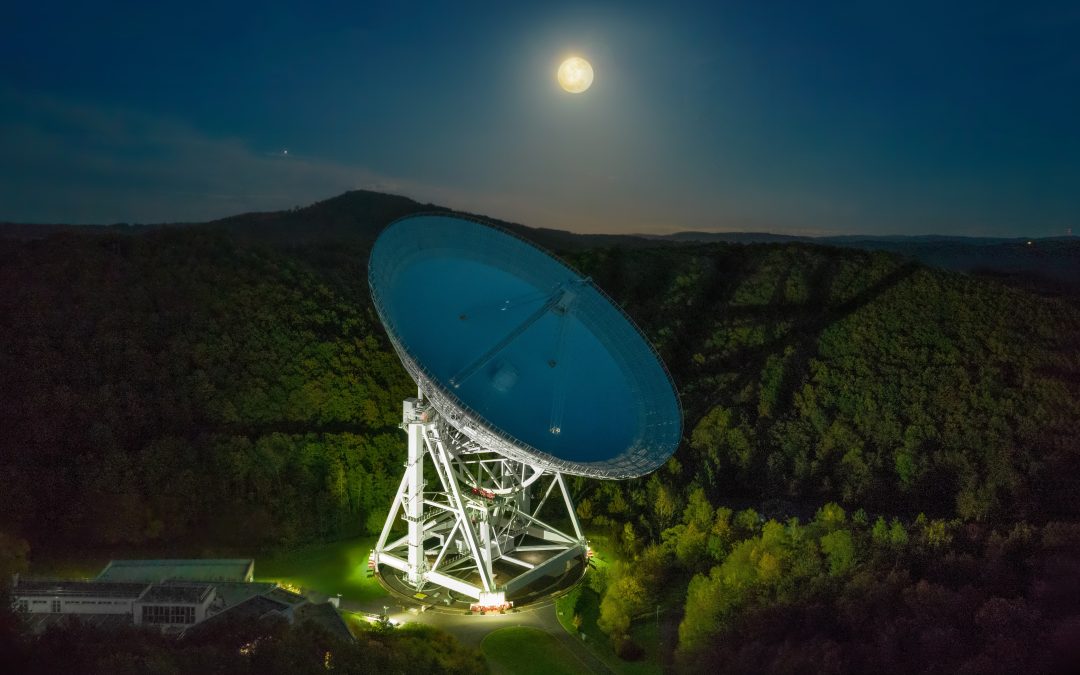Effelsberg 100m Radio Telescope
The 100-m Radio Telescope of the Max-Planck-Institut für Radioastronomie (MPIfR) is a unique European astronomical facility that combines superb sensitivity and wide frequency coverage (300 MHz to 90 GHz) with distinct versatility. The high surface accuracy of the reflector (the mean deviation from the ideal parabolic form is of the order of 0.5 mm rms) together with the construction principle of “homologous distortion” (i.e., the reflector in any tilted position has a parabolic shape with a well-defined, but shifted, focal point) enables very sensitive observations even at the highest frequencies. The receiver suite in the secondary focus of the telescope enables a nearly continuous frequency coverage of the telescope between 2-50 GHz in combination with highest possible time and frequency resolution and high frequency agility – switching between the various receivers is possible within 30 seconds. Currently, a new modular, general-purpose backend system is being installed. This system is based on a digitization of the signal in the receiver and a data transfer via ethernet. Data processing is done on a cluster of GPU servers, where a flexibel realization of various backend modes (continuum, polarimetry, spectroscopy, etc.) is possible. Observing time is granted after peer-reviewing on an „Open Skies“-basis, i.e. each and every astronomer can apply for observing time. There are three deadlines for proposal submission per year; around Feb, Jun, Oct 1st.
Main technical characteristics
- Frequency coverage 0.3-90 GHz
- high sensitivity and frequency agility
- flexible general-purpose backend-system
Access to data
The archive of continuum and spectroscopy data of the 100-m telescope goes back to the late 1980s. Within the ACME project, the access to the archives of the meta-data and later the data itself shall be facilitated.
There are regular calls to access the data. The call usually open about three weeks before the deadline. Applicants should use the NorthStar proposal tool for preparation and submission of their observing requests. North Star is reachable at https://northstar.mpifr-bonn.mpg.de. No other proposal submission will be accepted.

